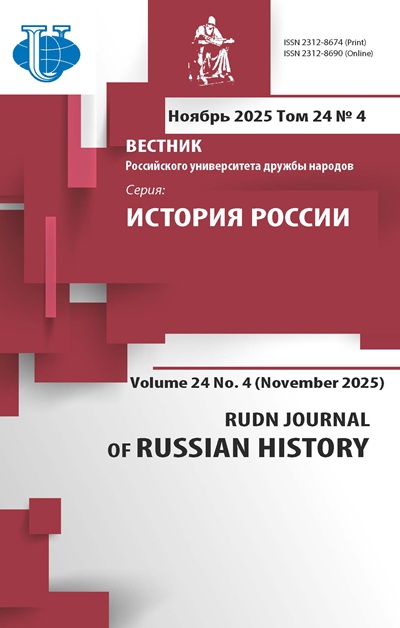SOCIAL ACTIVITY OF RUSSIAN ORTHODOX CHURCH IN 1990-2000S: CONCEPTUAL FOUNDATIONS AND EXPERIENCE OF REALIZATION
- Authors: Simonova MA1
-
Affiliations:
- Peoples' Friendship University of Russia
- Issue: No 4 (2014)
- Pages: 157-165
- Section: ARTICLES
- URL: https://journals.rudn.ru/russian-history/article/view/4260
- ID: 4260
Cite item
Full text / tables, figures
Abstract
This article deals with the essential characteristics of the social activities of the Russian Orthodox Church in the 1990-2000s. There are characterized priorities, shape, effective practice of social work and examined the conceptual foundations of the social activities of the Russian Orthodox Church. The analysis enables to establish the conceptual framework and the specifics of the social activities implementation of the Russian Orthodox Church. Particular attention is paid to the study of the status of the Russian Orthodox Church in the state and society. The specificity of the Social Concept of the church was active development, determined by social practices. In this regard, special attention is paid to the activities of the spiritual and educational centers, which are formed into a single system connected to various forms of ecclesiastical education and social service. In the analyzed period the Church clarified its position towards the state and civil society institutions and identified the principles and promising areas of cooperation. The Russian Orthodox Church has become one of the key social institutions that implement the function of the spiritual care of the moral state of society.
About the authors
M A Simonova
Peoples' Friendship University of Russia
Email: simonova2018@mail.ru
Department of Russian History
References
Supplementary files















